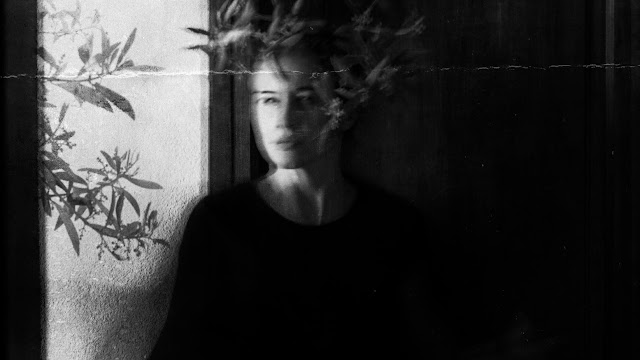 |
| Photo by Jenny Boot |
▒⡷▒⡷░𝐂░𝐎░𝐍░𝐓░𝐄░𝐌░𝐏░𝐎░𝐑░𝐀░𝐑░𝐘░ ░𝐀░𝐑░𝐓░ ░𝐅░𝐎░𝐑░ ░𝐘░𝐎░𝐔░𝐑░ ░𝐃░𝐀░𝐈░𝐋░𝐘░ ░𝐈░𝐍░𝐒░𝐏░𝐈░𝐑░𝐀░𝐓░𝐈░𝐎░𝐍░⢾▒⢾▒
venerdì 31 dicembre 2021
Mario Benedetti :: El otro yo / L’altro io / The Other Self
El otro yo / L’altro io / The other self
Se trataba de un muchacho corriente: en los
pantalones se le formaban rodilleras, leía historietas, hacía ruido cuando
comía, se metía los dedos a la nariz, roncaba en la siesta, se llamaba Armando
Corriente en todo menos en una cosa: tenía Otro Yo.
El Otro Yo usaba cierta poesía en la mirada,
se enamoraba de las actrices, mentía cautelosamente, se emocionaba en los
atardeceres. Al muchacho le preocupaba mucho su Otro Yo y le hacía sentirse
incómodo frente a sus amigos. Por otra parte el Otro Yo era melancólico, y
debido a ello, Armando no podía ser tan vulgar como era su deseo.
Una tarde Armando llegó cansado del trabajo,
se quitó los zapatos, movió lentamente los dedos de los pies y encendió la
radio. En la radio estaba Mozart, pero el muchacho se durmió. Cuando despertó
el Otro Yo lloraba con desconsuelo. En el primer momento, el muchacho no supo
qué hacer, pero después se rehizo e insultó concienzudamente al Otro Yo. Este
no dijo nada, pero a la mañana siguiente se había suicidado.
Al principio la muerte del Otro Yo fue un rudo
golpe para el pobre Armando, pero enseguida pensó que ahora sí podría ser
enteramente vulgar. Ese pensamiento lo reconfortó.
Sólo llevaba cinco días de luto, cuando salió
a la calle con el propósito de lucir su nueva y completa vulgaridad. Desde
lejos vio que se acercaban sus amigos. Eso le lleno de felicidad e
inmediatamente estalló en risotadas. Sin embargo, cuando pasaron junto a él,
ellos no notaron su presencia. Para peor de males, el muchacho alcanzó a
escuchar que comentaban: «Pobre Armando. Y pensar que parecía tan fuerte y
saludable».
El muchacho no tuvo más remedio que dejar de
reír y, al mismo tiempo, sintió a la altura del esternón un ahogo que se
parecía bastante a la nostalgia. Pero no pudo sentir auténtica melancolía,
porque toda la melancolía se la había llevado el Otro Yo.
Si trattava di un ragazzo comune: nei
pantaloni gli si formavano le impronte delle ginocchia, leggeva fumetti, faceva
rumore quando mangiava, si metteva le dita nel naso, russava durante il
pisolino, si chiamava Armando Corriente, comune in tutto meno che in una cosa:
aveva un Altro Io.
L’Altro Io usava una certa poesia nello sguardo,
si innamorava delle attrici, mentiva con cautela, si emozionava al tramonto. Al
ragazzo lo preoccupava molto il suo Altro Io e lo faceva sentire a disagio di
fronte ai suoi amici. D’altra parte l’Altro Io era malinconico, e per questo
Armando non poteva essere così volgare come era suo desiderio.
Una sera Armando arrivò stanco dal lavoro, si
tolse le scarpe, mosse lentamente le dita dei piedi e accese la radio. Alla
radio davano Mozart, ma il ragazzo si addormentò. Quando si svegliò l’Altro Io
piangeva sconsolato. In un primo momento il ragazzo non seppe che fare, ma poi
si riebbe e insultò coscienziosamente l’Altro Io. Questi non disse niente, ma
il mattino dopo si era suicidato.
Inizialmente la morte dell’Altro Io fu un duro
colpo per il povero Armando, ma poi pensò che ora sì avrebbe potuto essere
interamente volgare. Questo pensiero lo confortò.
Era in lutto da soli cinque giorni quando uscì
in strada col proposito di sfoggiare la sua nuova e completa volgarità. Vide da
lontano che i suoi amici si stavano avvicinando. Questo lo riempì di felicità e
immediatamente scoppiò a ridere rumorosamente. Tuttavia, quando gli passarono
vicino, i suoi amici non notarono la sua
presenza. Ancora peggio, il ragazzo li sentì che commentavano: “Povero Armando.
E pensare che sembrava così forte e in salute”.
Il ragazzo non trovò altro rimedio che
smettere di ridere e nello stesso momento sentì all’altezza dello sterno
un’angoscia che assomigliava alla nostalgia. Ma non poté sentire autentica
malinconia perché tutta la malinconia se l’era portata via l’Altro Io.
(Traduzione di Laura Ferruta)
This is about an ordinary boy. A boy who wore
ill-fitted pants, read stories, made noise while he ate, put fingers inside his
nose and snored in his sleep. Armando was a normal boy in every manner, except
one: he had the Other Self.
His Other Self had a poetical perspective, he
was enamored by actresses, lied cautiously, and was moved by sunsets. The boy
was bothered a lot by his Other Self and it made Armando very uncomfortable in
front of his friends. Moreover, the Other Self was melancholic, and due to
that, Armando could not be as normal as he wanted.
One evening, Armando returned exhausted from
work. He took off his shoes, wiggled his toes slowly and turned on the radio.
Mozart played on the radio but the boy dozed off. When he woke up, his Other
Self was crying inconsolably. At first, the boy didn`t know what was happening,
but eventually he pulled himself together and started insulting the Other Self
anxiously. He did not say anything to Armando then, but the following day, the
Other Self had committed suicide.
At first, the death of his Other Self was a
harsh blow for poor Armando. But eventually, he thought that now he could be
completely normal with everyone. This thought comforted him immensely.
He mourned for five days only. Then, one day,
he went out into the streets with the idea of shining the light of his newfound
and total normality upon people. From a distance he saw that his friends were
approaching him. This filled him with happiness and he burst into laughter.
However, when they passed by him, they did not
notice his presence. The worst part was that the boy went on to hear someone
comment –“Poor Armando! And to think that he was so strong and healthy!”
The boy couldn`t stop laughing, and at the same time he felt a lump in his throat that seemed a lot like nostalgia. But he couldn`t feel genuine melancholy because his Other Self had taken away all the melancholy with him.
 |
| Photo by Edward Honaker, more HERE |

















































